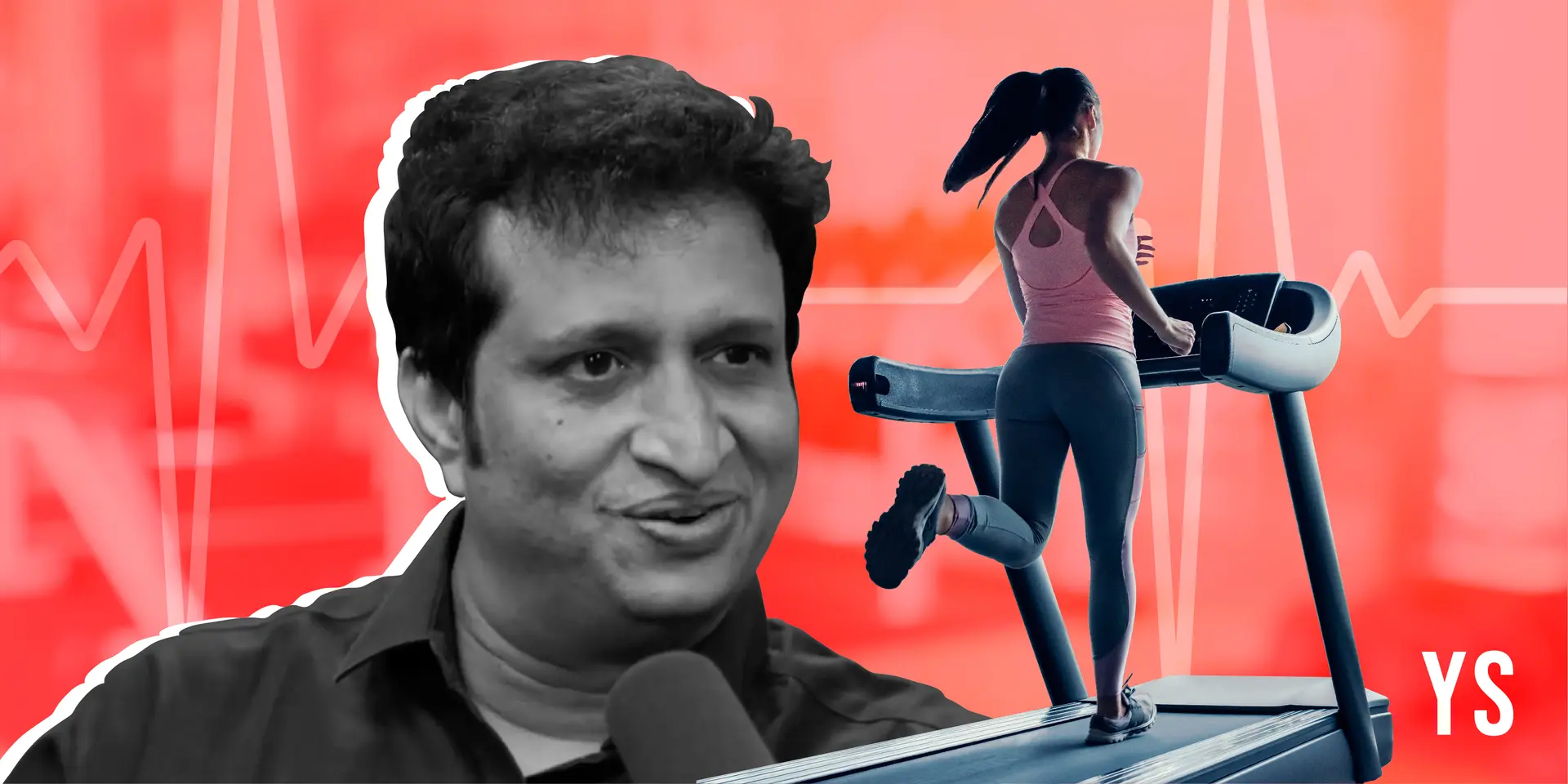Exercise is killing and saving people: Dr Ranjan Shetty
Dr Ranjan Shetty of Manipal Hospital speaks about maintaining a regular exercise regime to stay healthy.
Key Takeaways
- Dr Ranjan Shetty believes that regular exercise, at least three to four days a week, is necessary for good health.
- He says that individuals might slowly build their endurance instead of suddenly attempting strenuous exercises.
- The cardiologist is of the view that systematic exercise planning is essential. He advises people to have long-term fitness goals.
Financial experts will tell you that consistent and sustained investments over a long period yield good returns. Dr Ranjan Shetty has a similar theory for fitness, something he calls “SEP” or “Systematic Exercise Planning”. It is akin to mutual fund SIPs in the sense that SEP involves systematic endurance building through regularly working out.
“Exercise is saving people and killing people. What we know concerning exercise is to do something rather than nothing. But it does not mean you do extreme exercises without building endurance first,” says Dr Shetty, HoD & Consultant, Interventional Cardiology, Manipal Hospital, Bengaluru.
You may have heard of the 0-1 journey at startups; Dr Shetty has a similar analogy for workouts. Here, 0 is doing nothing and 1 denotes doing something. This “something” can be 30-40 minutes of moderate workouts a day, done four times a week, or 20 minutes of high-intensity exercises a day, done three times a week. In addition, he recommends a full-body workout at least twice a week.
However, there is a caveat. The doctor cautions individuals against performing challenging exercises without building the physical strength to reach that stage.
“Extreme exercising can be harmful, especially if you haven’t trained enough. You need a certain amount of discipline to build your endurance. Work out according to your age and do not have short-term goals,” the doctor says.
His words of wisdom are important pieces of advice when cardiovascular disease is the number one cause of death in India. Between 2021 and 2024, several public figures, including singer KK, actors Daniel Balaji, Rituraj Singh, and Sidharth Shukla, died after suffering a heart attack.
Data from the National Crime Records Bureau (NCRB) shows that 32,457 individuals succumbed to heart attacks in 2022 in the country, a 12.5% increase over the previous year.
How to invest in “SEP”
Contrary to popular belief, even individuals with a healthy lifestyle can also face heart ailments. Case in point is Nithin Kamath, CEO of , who recently admitted that he faced a “mild stroke”. He listed out possible causes for the stroke, including stress, poor sleep, exhaustion, dehydration, and overworking out.
Dr Shetty thinks “SEP” works best for individuals across age groups. “If you look at marathons or extreme sports, such as the Ironman Triathlon, there are always reports of deaths and injuries. I would advise people to look at their fitness from a 15-20-year horizon to get real benefits,” he says.
The cardiologist believes in the power of compounding to slowly accumulate strength in the body and get stronger. The allied factors that matter, according to him, are age and family history of ailments. He adds that women are as susceptible to heart attacks as men, just that the reproductive age pushes the risk to a certain extent among females.
India and the “health factor”
Dr Shetty had a modest upbringing in Mangalore, where he pursued an MBBS programme from Kasturba Medical College. Later, he moved to AIIMS, New Delhi, to pursue an MD Medicine programme. He has lived in India, studied in India, and is now giving back to the community as a doctor. Dr Shetty firmly believes that India’s healthcare system is well-equipped to handle all medical complications.
“In proportion to our country’s GDP, we are far superior in healthcare. We have ease of accessibility. In India, you can walk into a specialist and get relief whereas in places like the US and the UK, you have a long wait list,” he adds.
However, to further improve healthcare access, he thinks that the average medical intervention reaches everyone.
“Should we get the most expensive therapy to India or should we take a simple thing like aspirin and ensure that everyone in India gets it? These are two divergent paths, but I think we should do both,” he explains.
An added intervention is cardiopulmonary resuscitation or CPR, which Dr Shetty firmly advises every Indian to get trained in.
Death is not scary
As a doctor, Dr Shetty has seen his fair share of deaths. But his field of work is such that sometimes, death is not preventable. In fact, various studies suggest that one-third of patients experiencing heart attacks die before reaching the hospital.
“We doctors cannot be judged by the outcomes because sometimes the outcomes cannot be changed. But as a medical professional, I work hard and ensure that there are no complications. I ensure that the patients get the best treatment, irrespective of their finances,” he adds.
On a philosophical level, however, Dr Shetty believes that death per se is not something you should be scared about. He says that everyone must have this self-realisation, though it is a harsh truth.
Having said that, Dr Shetty is equally aware of the paranoia surrounding death and the quest to live longer.
Referring to the “fitness tracker generation” that is always monitoring their steps, their sleep patterns, and the calories burnt, he advises them to ease up a little. Dr Shetty has seen all facets of health and fitness and he definitely knows what works best. “Live your life and make the best use of it,” he says.



